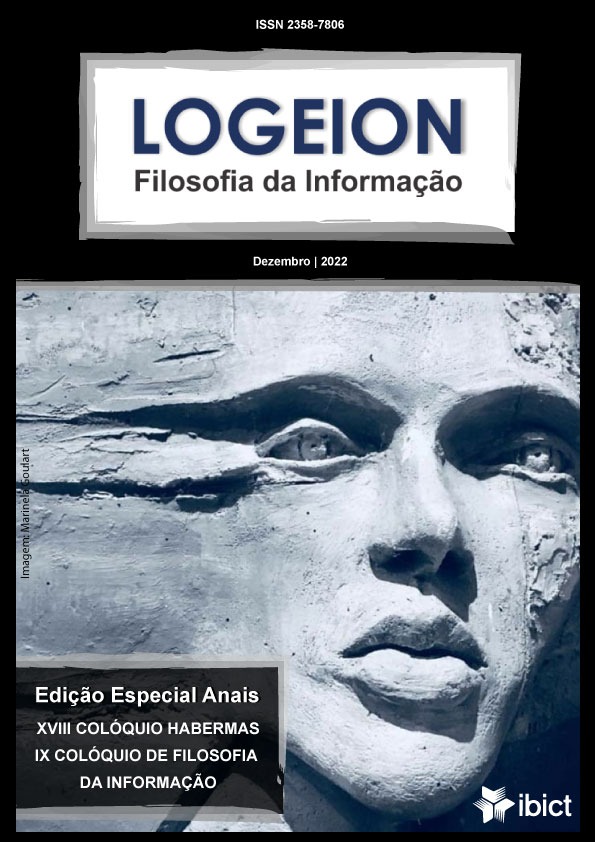O lugar da desinformação na cognição social ou como lidar com propriedades da cognição que abrem espaço para a falseabilidade
DOI:
https://doi.org/10.21728/logeion.2022v9nesp.p377-394Keywords:
Cognition. Misinformation. Philosophy. Language.Abstract
According to neuroscientist Miguel Nicolelis (2020), responsible for exoskeletons powered by mental commands, disinformation processes are part of social cognition. The delegation of mental content processing to other cognitions or cognitive networks considered reliable mechanisms of belief production and the attraction of the human species for symbolic information, which only exist between brains with language, are intrinsic compulsions to the complex informational system that originates us and, because of its teleodynamics, it always offers gaps for incoherent and even harmful informational articulations. Faced with this observation, we are interested in focusing on the elaboration of narratives that, by knowing the cognitive origin of disinformation, can better interrupt and rearrange such processes of falsification. There is interest in investing in this understanding because, due to its scientificity and relevance, it can leverage efforts to combat disinformation, provide subsidies for the disarticulation of mechanisms considered reliable and highlight characteristics of cognition as a social process that includes the division of cognitive tasks and the co-responsibility. The objective of this research is to analyze the aforementioned compulsions and support interventions committed to social interest. The philosophy of information as presented to us by Floridi (2011) and Deacon (2012), offers a theoretical overview attuned to the objectives pursued. In this bias, individuals are subsystems specialized in linguistic (rational, semiotic) modeling of mental contents, originated in perception and learning, in order to make them accessible and useful to the system to which they belong.
Downloads
References
DAMÁSIO, António. A estranha ordem das coisas. Lisboa: Círculo de Leitores, 2017.
DEACON, Terrence. The symbolic species. The co-evolution of language and the Brain. NY/London: W.W. Norton & Company, 1997.
DEACON, Terrence. Incomplete nature how mind emerged from matter. NY/London: W.W. Norton & Company, 2012.
FLORIDI, Luciano. The philosophy of information. Oxford: Oxford, 2011.
FLORIDI, Luciano. The ethics of information. Oxford: Oxford, 2013.
NICOLELIS, Miguel. O verdadeiro criador de tudo. São Paulo: Planeta, 2020.
Downloads
Published
Issue
Section
License
Copyright (c) 2023 Logeion: Filosofia da Informação

This work is licensed under a Creative Commons Attribution-NonCommercial-ShareAlike 4.0 International License.
The journal is published under the Creative Commons - Attribution - Noncommercial - Share Alike 3.0 Brazil.
The published work is considered collaboration and therefore the author will not receive any remuneration for this as well as anything will be charged in exchange for publication.
All texts are responsibility of the authors.
It’s allowed partial or total reproduction of the texts of the magazine since the source is cited.




